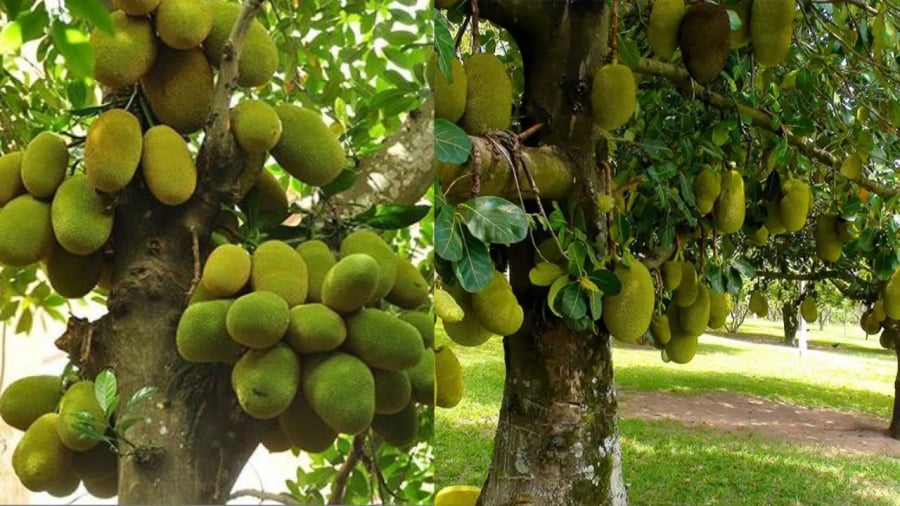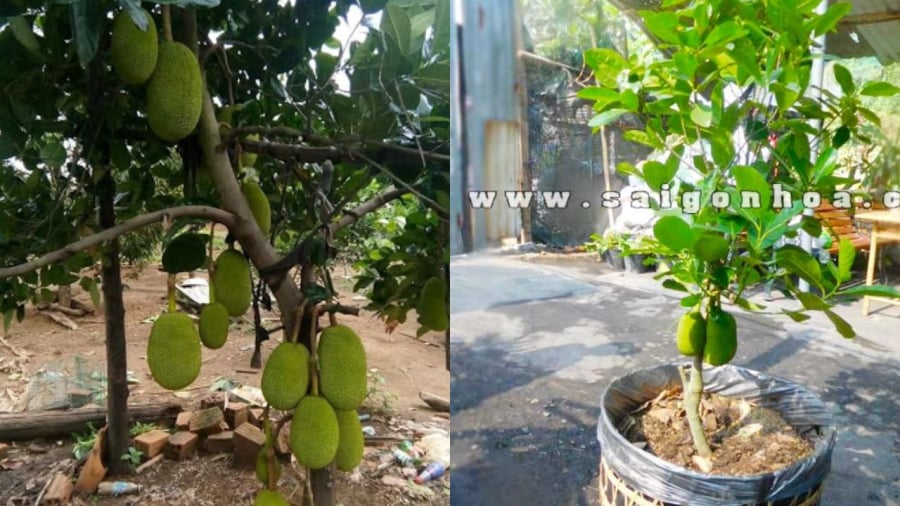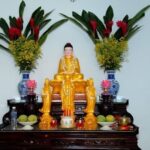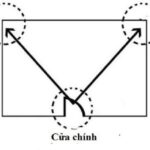Superstitions Surrounding the Jackfruit Tree in Vietnam
In Vietnamese folk beliefs, trees planted in front of houses must be aesthetically pleasing and attract wealth. The jackfruit tree is a highly valued plant due to its delicious and expensive fruits compared to other fruits, and its wood is also prized for its resistance to insects and durability. However, planting a jackfruit tree in front of your house may lead to the following issues:
– The jackfruit tree is a large tree with a massive trunk. Especially in the past, Vietnam only had the native jackfruit variety, which tended to grow very tall and wide. Planting one in front of a house would block the entrance, creating a dark and gloomy atmosphere due to a lack of sunlight. The jackfruit tree’s appearance is also not considered aesthetically pleasing, and from a Feng Shui perspective, a large tree blocking the entrance is seen as unfavorable as it obstructs the path of wealth and increases negative energy.
– During the flowering and fruiting season, jackfruit trees produce many young fruits that fall to the ground. When these fruits drop, they often develop mold and rot, creating an unsightly and unpleasant mess in front of the house. The leaves of the jackfruit tree also tend to shed frequently, and the tree has a large number of leaves, making cleanup a tedious task.

Multiple Reasons Make Jackfruit Tree Inappropriate for Planting in Front of Houses
– Jackfruit trees are commonly planted in temples and pagodas, and their wood is used for sculptures. Due to this association with religious sites, people are reluctant to plant them in their homes, fearing spiritual implications or an excess of negative energy. In ancient times, jackfruit trees were predominantly planted in temples and pagodas, so people were hesitant to bring those trees from sacred places into their homes. The jackfruit tree possesses strong energy, and it can be challenging to suppress this energy in a regular home, potentially leading to an imbalance where the tree absorbs positive energy from the household.
– While the jackfruit is large, sweet, and tasty, it is covered in sharp spines. From a Feng Shui perspective, having these spines right at the entrance of your house is considered unfavorable. Sharp objects generate negative energy, causing irritability and increasing negative vibes within the household.
Is it Acceptable to Plant Jackfruit Trees Today?
Nowadays, jackfruit trees are used as public greenery in many places, including along roadsides. Some families even plant small jackfruit trees in front of their houses. New jackfruit varieties are smaller in size but still bear fruit. These modern jackfruit trees resemble ordinary ornamental plants yet produce edible fruits.

Modern Cultivars of Jackfruit Trees Are Smaller and Suitable for Home Gardens
Therefore, you can certainly plant a small jackfruit tree to ensure it doesn’t impact the aesthetics and Feng Shui of your home while still providing you with delicious fruits and leaves for tea.
Today, most families with limited land space choose not to plant jackfruit trees due to their lack of visual appeal rather than any spiritual taboo.
This information is for reference only and is subject to individual interpretation.
“The Power Plant: Unlocking Prosperity with the Mighty Dinh Lang Tree”
In traditional folklore, the act of planting a Dinh Lang tree in front of one’s home is believed to bring about a host of benefits. This auspicious practice is thought to ward off negative energy, attracting instead a wealth of good fortune and prosperity. With the Dinh Lang tree standing guard, monetary losses are averted, and the household is protected from a myriad of potential misfortunes.





































